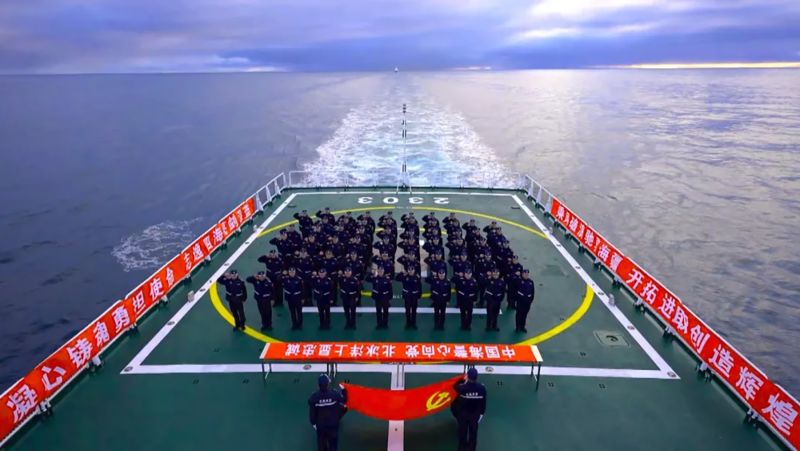
Breaking News: China’s Coast Guard Makes Historic Arctic Debut in Strengthened Alliance with Russia
China’s Coast Guard Claims to Have Entered the Arctic Ocean for the First Time as it Ramps up Security Ties with Russia
The Arctic region, characterized by its extreme cold climate and vast resource potential, has been garnering increasing attention from nations around the world. China, known for its ambitious global initiatives, has recently made a significant move by announcing that its Coast Guard vessels have entered the Arctic Ocean for the first time. This development signals China’s intent to expand its presence in the Arctic region and boost its security cooperation with Russia.
The strategic implications of China’s Arctic expedition are multifaceted. Firstly, it highlights China’s growing interest in the Arctic’s economic and geopolitical significance. With melting ice caps opening up new shipping routes and access to lucrative resources such as oil, gas, and minerals, the Arctic has become a hotspot for global competition. By sending its vessels into Arctic waters, China aims to assert its presence and stake a claim in the region’s future development.
Furthermore, China’s foray into the Arctic aligns with its broader geopolitical strategy of forging closer ties with Russia. The two countries, sharing a common interest in countering Western influence and expanding their spheres of influence, have been strengthening their security partnership in recent years. China’s Arctic expedition can be seen as a manifestation of this partnership, with the two nations collaborating to protect their mutual interests in the region.
However, China’s Arctic ambitions are not without challenges and concerns. The increasing presence of non-Arctic states like China in the region has raised questions about their adherence to international laws and regulations governing the Arctic. As a region governed by the Arctic Council and governed by the United Nations Convention on the Law of the Sea, the Arctic is subject to complex legal frameworks that aim to ensure sustainable development and environmental protection.
Moreover, China’s Arctic activities have also drawn scrutiny from Arctic states such as the United States and Canada, which view non-Arctic nations’ involvement with suspicion. These countries fear that China’s growing presence in the Arctic could potentially disrupt the delicate balance of power in the region and lead to increased competition and tensions.
In conclusion, China’s entry into the Arctic Ocean represents a significant development in the ongoing geopolitical dynamics of the region. As China ramps up its security ties with Russia and asserts its presence in the Arctic, the region is likely to witness increased competition and cooperation among global powers. The key challenge for China, as well as other non-Arctic states engaging in Arctic affairs, will be to navigate the complex legal and geopolitical landscape of the region while balancing their economic and strategic interests.
